The Eligibility Question!
Every year you have a few books that are borderline eligible or not… there may be confusion because of a writer’s residency or the book’s publication date or how much of the book is original content.
The ALSC website defines all the Newbery eligibility terms here: and I’ll put them on the bottom of this page for easy reference. The terms state that a book be awarded to a distinguished title published in the United States by an American author in the previous year.
ADVERTISEMENT
ADVERTISEMENT
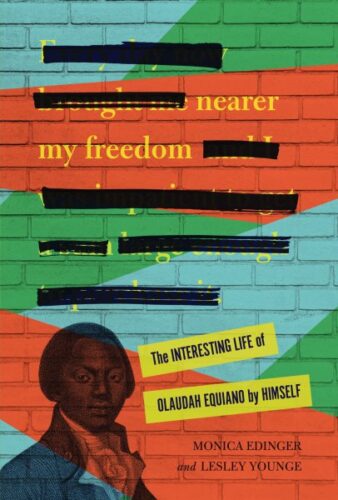
Sometimes I feel like these terms and criteria can bring up more questions than answers. In times of confusion, the committee chair is encouraged to bring the titles at hand to their ALSC contact for further review..
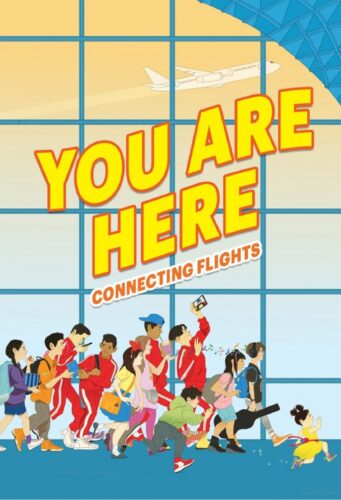
What confuses me most, is that titles are only to be compared to other eligible titles. But if you aren’t sure if a title is eligible or not, how do you know if you can compare it to others? (Please answer this deep question for me Steven, thank you!)
For some reason there seems to be much more borderline books than usual this year. And today, let’s take a look!
Majorly questionable titles
The two titles this year that seem to be the biggest head scratchers are: YOU ARE HERE: CONNECTING FLIGHTS, Edited by Ellen Oh and NEARER MY FREEDOM: THE INTERESTING LIFE OF OLAUDAH EQUIANO BY HIMSELF.
For YOU ARE HERE, there is an issue of too many authors! It is written by twelve different people, who I believe all meet the residency requirements.
Steven dropped it from eligibility based on the updated manual and this reasoning , but we can still hold out hope that the committee will decide otherwise- “Anthologies and compilations of works by many authors are not eligible. Books of this nature
consist of multiple distinct elements and are generally not a unified whole. As such, they do not constitute a single work and are therefore ineligible.” (p 62) Based on that, we’ll remove YOU ARE HERE from our Heavy Medal discussion this year. But……..even based on the Manual’s guidance, you could make the argument that the stories in YOU ARE HERE actually do “constitute a single work,” since they fit together so neatly, sharing the same setting and often the same characters. The example cited in the Manual is FLYING LESSONS from 2017, also edited by Ellen Oh, but it’s a different kind of book. The stories in that one didn’t overlap the way the ones in YOU ARE HERE do. Still, the “compilations…are not eligible” from the Manual is pretty direct, so we’ll drop YOU ARE HERE from our Mock Newbery. “
Going off of that reasoning, I believe GROUNDED would also be ineligible… however it only has four authors so is it really a compilation?
NEARER MY FREEDOM is where the question of original work comes in. I mean, the title even says THE INTERESTING LIFE OF OLAUDAH EQUIANO BY HIMSELF. However there is a significant amount of new text by Monica Edinger and Lesly Younge. Is it enough to be an original work? I think I’d vote no, but… maybe the committee will decide otherwise.
Straightforward nos!
ADVERTISEMENT
ADVERTISEMENT
Other titles deemed ineligible this year weren’t quite as complicated. Take THE PROBABiLITY OF EVERYTHING for example by Sarah Everett. Everett is clearly Canadian which excludes her. It’s a bummer we can’t compare this book to everything else this year! We’ve had a few books like BLOOD BROTHERs suggested that were published in 2022 which is also an easy ineligible. Then there’s the picture book REMEMBER by Joy Harjo which is a beautiful poem, but the text is the same as published in 1981.
Are there any other titles this year that have you questioning eligibility? Let us know in the comments!
Terms
1. The Medal shall be awarded annually to the author of the most distinguished contribution to American literature for children published by an American publisher in the United States in English during the preceding year. There are no limitations as to the character of the book considered except that it be original work. Honor books may be named. These shall be books that are also truly distinguished.
2. The Award is restricted to authors who are citizens or residents of the United States.
3. The committee in its deliberations is to consider only the books eligible for the award, as specified in the terms.
6. “In English” means that the committee considers only books written and published in English. This requirement DOES NOT limit the use of words or phrases in another language where appropriate in context.
Definitions
1. “Contribution to American literature” indicates the text of a book. It also implies that the committee shall consider all forms of writing—fiction, non-fiction, and poetry. Reprints, compilations and abridgements are not eligible.
2. A “contribution to American literature for children” shall be a book for which children are an intended potential audience. The book displays respect for children’s understandings, abilities, and appreciations. Children are defined as persons of ages up to and including fourteen, and books for this entire age range are to be considered.
3. “Distinguished” is defined as:
• Marked by eminence and distinction; noted for significant achievement.
• Marked by excellence in quality.
• Marked by conspicuous excellence or eminence.
• Individually distinct.
4. “Author” may include co-authors. The author(s) may be awarded the medal posthumously.
5. The term “original work” may have several meanings. For purposes of these awards,
it is defined as follows:
• “Original work” means that the text was created by this writer and no one else. It may include original retellings of traditional literature, provided the words are the author’s own.
• Further, “original work” means that the text is presented here for the first time and has not been previously published elsewhere in this or any other form. Text reprinted or compiled from other sources are not eligible. Abridgements are not eligible.
7. “American literature published in the United States” means that books first published in previous years in other countries are not eligible. Books published simultaneously in the U.S. and another country may be eligible. Books published in a U.S. territory, or U.S. commonwealth are eligible.
8. “Published…in the preceding year” means that the book has a publication date in that year, was available for purchase in that year, and has a copyright date no later than that year. A book might have a copyright date prior to the year under consideration but, for various reasons, was not published until the year under consideration. If a book is published prior to its year of copyright as stated in the book, it shall be considered in its year of copyright as stated in the book. The intent of the definition is that every book be eligible for consideration, but that no book be considered in more than one year.
9. “Resident” specifies that the author has established and maintains a residence in the United States, U.S. territory, or U.S. commonwealth as distinct from being a casual or occasional visitor.
10. The term, “only the books eligible for the award,” specifies that the committee is not to consider the entire body of the work by an author or whether the author has previously won the award. The committee’s decision is to be made following deliberation about the books of the specified calendar year.
Filed under: Book Discussion
About Emily Mroczek-Bayci
Emily Mroczek (Bayci) is a freelance children’s librarian in the Chicago suburbs. She served on the 2019 Newbery committee. You can reach her at emilyrmroczek@gmail.com.
ADVERTISEMENT
ADVERTISEMENT
SLJ Blog Network
2024 Books from Printz Winners
Fuse 8 n’ Kate: Enemy Pie by Derek Munson, ill. Tara Calahan King
Unhappy Camper | This Week’s Comics
Navigating the High School and Academic Library Policy Landscape Around Dual Enrollment Students
ADVERTISEMENT



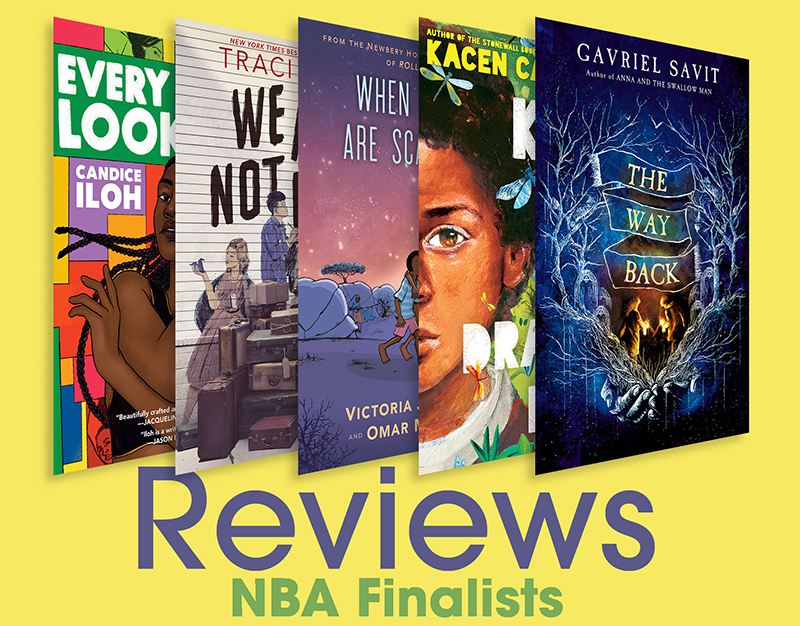
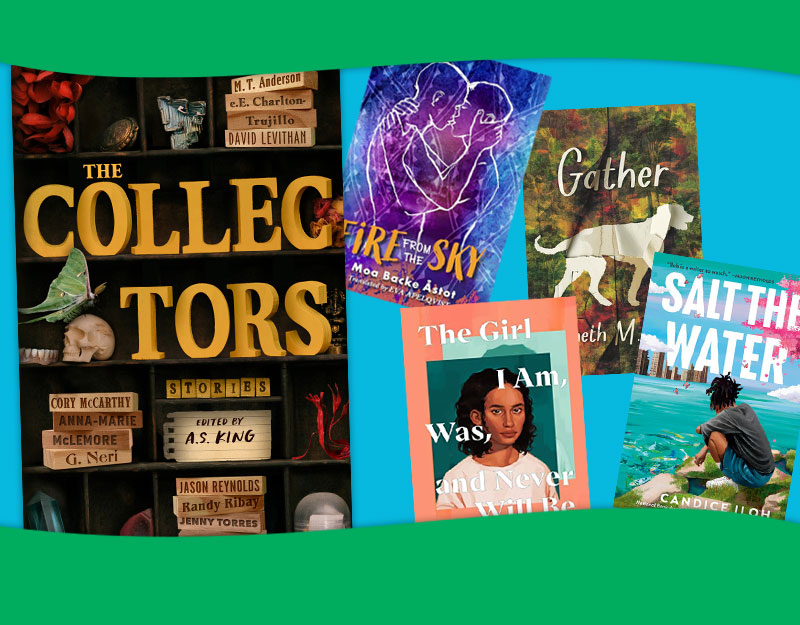
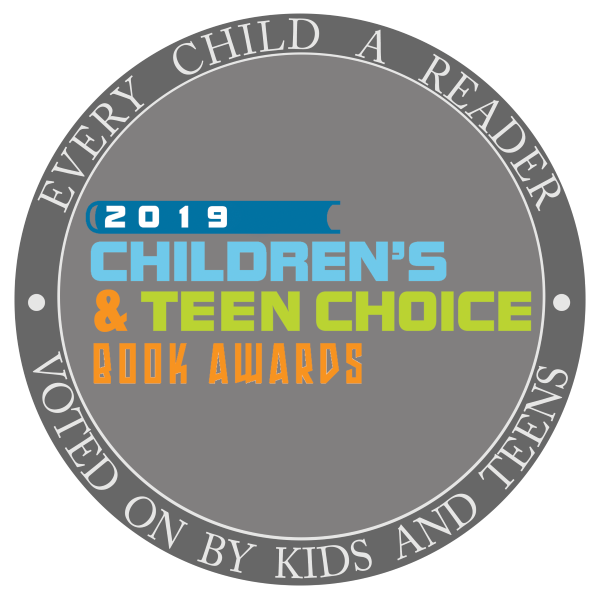
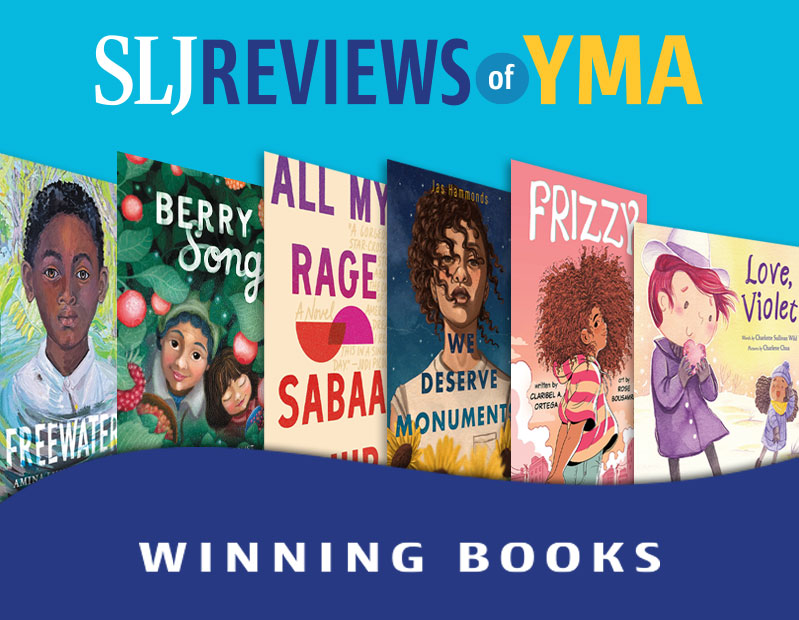
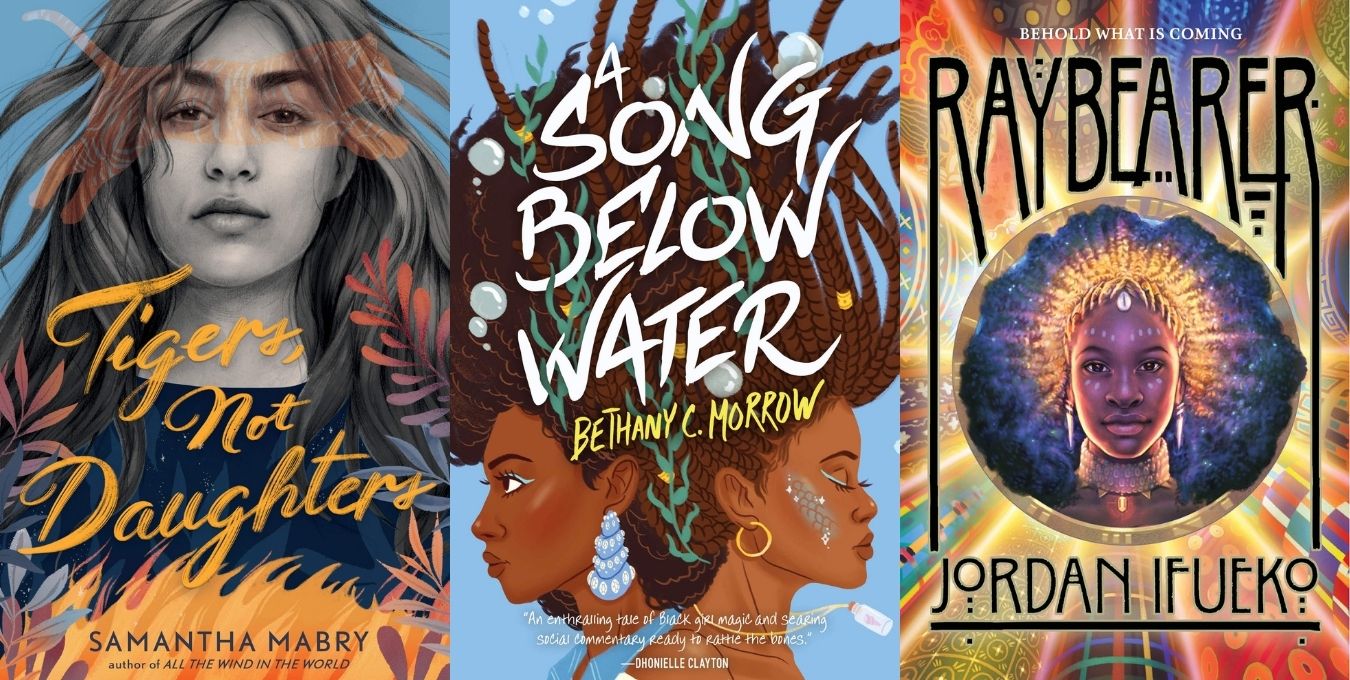
REMEMBER by Joy Harjo is interesting, because, as Emily points out, the previously published text makes it ineligible for the Newbery. But the illustrations are new, so the book should be Caldecott-eligible…
Let me start by saying that I haven’t read YOU ARE HERE, so can’t really comment about it, but these questions come to mind.
1) Where’s the line between, say, a co-authored book like THE LOST LIBRARY and ineligible? The manual says, “Anthologies and compilations of works by many authors are not eligible,” but couldn’t there be a work by multiple authors that is not an anthology or compilation?
1a) Trivia: unless I’ve missed something, a co-authored book has never won the Medal. Five pairs of co-authors have won seven Honors, but not since 1975, and all the rest before 1955. Only one pair was not related or married. No book with more than two authors has won anything.
2) It does seem to me the comparison with Flying Lessons is arguable. In that book, every contribution was by-lined and it states “anthology” right on the cover. In YOU ARE HERE, yes if you look at the front matter, you can see which author holds the copyright to what, but (I’m asking, I haven’t read it) could one tell otherwise?
2a) An interesting and possible precedent is The Cardboard Kingdom, one of my favorite books of 2018. Chad Sell is the only author listed on the cover and the backmatter. But most of the chapters are named after a character and have a byline of “[someone else] and Chad Sell.” All of the ten someone elses get a little bio in the afterword, “How We Built The Kingdom”, where each writes about the inspiration for “their” character. Yet I think it’d be wrong to argue The Cardboard Kingdom is an anthology or compilation, “not a unified whole”, that should’ve been ineligible for the reasons given in the manual for a book “of this nature.” On the other hand, had it won an award, I could see it being very reasonably awarded just to Sell.
I keep going back and forth about YOU ARE HERE. Here’s the guidance from the Newbery Manual:
Anthologies and compilations of works by many authors are not eligible. Books of this nature
consist of multiple distinct elements and are generally not a unified whole. As such, they do not
constitute a single work and are therefore ineligible.
You could read that “works by many authors” as enough to make it ineligible. But if you look at the content of the book, it does work as “a unified whole.” Also true of the CARDBOARD KINGDOM books (#3 comes out in November).
And then there’s GROUNDED, which Emily cites above. Maybe more clearly a “unified whole” because each author has multiple chapters, which is more in line with THE LOST LIBRARY. While in YOU ARE HERE, each author gets just the one story…which is more like a traditional compilation…except that each author’s story relates to the whole thing.
I made the earlier call that YOU ARE HERE looks ineligible, partly based on the “resolve as soon as possible” thing I mentioned in another comment with this post. But I’m less sure than I was, and with so much gray area, maybe we should just let that one, as well as GROUNDED and CARDBOARD KINGDOM #3, be considered “eligible” for our Heavy Medal purposes….Any objections or agreements?
I’m pretty sure you’re right Leonard, that ” a co-authored book has never won the Medal.” Six Caldecott Medal books by five pairs (the Dillons won twice), but not yet for the Newbery…
Emily asked this excellent question: “But if you aren’t sure if a title is eligible or not, how do you know if you can compare it to others?”
I’m not sure what the answer is. The main thing, I think, would be to let all members know that there is an eligibility question as soon as it comes up and resolve it as fast as possible. Until then, I might lean towards assuming the book will be eligible…you wouldn’t want to shortchange it because of a non-literary issue (eligibility) and if it’s later judged ineligible, members would just have to disregard previous discussion. (I confess, I wrote some pretty detailed notes for THE PROBABILITY OF EVERYTHING before realizing it’s ineligible…all for nothing!)
On Heavy Medal, we make our best guess and go on. But the real Committee needs to get eligibility questions resolved as soon as possible. You wouldn’t want one of your precious 7 nominations (which start in October) to get thrown out. And by the time of discussion and voting (usually January) the group definitely needs everything resolved.
The 15 Committee members are on alert for eligibility issues throughout the year. If anything is unclear, they notify the Chair. If it’s still unclear, the Chair works with the Priority Consultant * and they make the call and let the group know. I assume that this year’s Committee already knows where NEARER MY FREEDOM and YOU ARE HERE stand…but we’ll never know unless one of them wins.
* The Priority Consultant is an ALSC-appointed person whose role is to support the Awards committees in all kinds of ways…Judy Zuckerman of the Brooklyn Public Library was PNC during my year as Chair and was extremely helpful.
I’m frustrated by the vague definition in the manual update. What determines “many?” Also, the second sentence implies that the title (authored by many) would not present a unified whole. I would argue that “You are Here” is a unified whole. I certainly understand the example of “Flying Lessons,” but “You are Here” is not a compilation of short stories. So, does the second sentence override the first? How does one argue this in committee, and who makes the determination of its eligibility? Is this really up to the Priority Consultant. I facilitate a Mock Newbery at my library, and we are not sure what to do with this title. It’s a favorite. Can you provide any guidance?
It’s really hard to truly explain what happens and I think the ambiguity is intentional (which I know is not the answer you want). I like to believe it’s a conversation between the chair and the PGC where they come to a reasonable decision about a title. And because books must be suggested and then nominated before Midwinter, there should be plenty of time for the committee to determine eligibility so they know if it can be discussed at Midwinter or not.
For here, I’m worried if we bring it back into discussion it will be bogged down too much by the “is-it-eligible questions” and we should just stick with the earlier decision for consistencies sake.
I agree with Emily. In a Mock-Newbery, we just can’t know what’s been decided, so let’s err on the side of not discussing a book that might be ineligible. And while eligibility issues are interesting, and very discuss-able, when we get to the actual Mock Newbery discussions it’s nice to just focus on the content of the books.
Fortunately we have more than enough strong titles. Getting down to a list of 15 will be challenging, even if YOU ARE HERE is off the table. Which it is. For sure this time….
You Are Here: Connecting Flights (Oh) – If there was a award for editors and creative collaboration leadership, Ellen Oh would be my choice for the prize. FLYING LESSONS & OTHER STORIES was one of my favorite books of 2017, so I was stoked about this book. She amassed a incredibly talented group of writers that collectively created a great piece of literature.
I did not select it as a Newbery contender although it was an incredible book. While the plot was a strong thread, I couldn’t match the criteria to the numerous authors without questions.
My I wrote a review for Children’s Book Committee at Bank Street College of Education in August.
I was super stoked that the book was selected as the Book of October with my review:
“The story’s plot is expertly crafted, skillfully weaving together individual experiences and intricate connections that support the overall narrative. The book engaged me as a reader, as I was drawn to the small details (like a red hair bow), that tied it all together. Most importantly, the thoughtful exploration of racism and discrimination in the United States was intertwined in a way that provoked contemplation.
The challenges of growing-up and creating identity are a big part of most middle grade books. In this iteration, the characters have their own interests, experiences, and talents but they all connect through their Asian roots. This includes the challenge of honoring cultural background and families while encountering inherent bias, ignorance, and racism. With the rise of racially charged hate crimes in the USA following the Covid-19 pandemic, You Are Here: Connecting Flights is a perfectly timed book for young readers to break that cycle.”
NEARER MY FREEDOM: THE INTERESTING LIFE OF OLAUDAH EQUIANO BY HIMSELF (Younge/ Edinger)
This was a book I nominated over the summer. The line out poetry concept is really creative and brilliantly done. It could be compared to Lin-Manuel Miranda’s HAMILTON, for its modernization of a first-hand account of history. Their choices made the book readable, interesting and relevant.
After understanding more and more about Newbery criteria, It makes sense that it will not be considered because the authors are re-working original content (as opposed to Miranda’s all original content.)
Still, I hope people pick it up. It could be a free verse/ poetry consideration for other national awards.